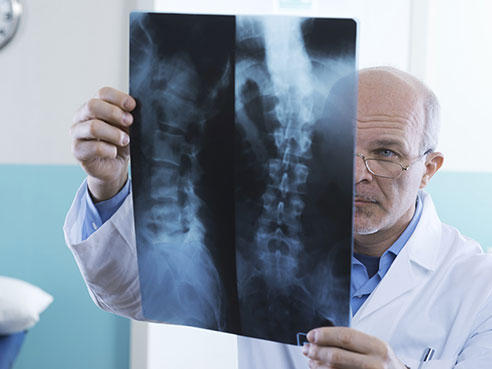 A new study from the University of Alabama at Birmingham could provide the first known data about the impact of dietary patterns on diet adherence and cardiometabolic risk factors in adults with spinal cord injury, or SCI.
A new study from the University of Alabama at Birmingham could provide the first known data about the impact of dietary patterns on diet adherence and cardiometabolic risk factors in adults with spinal cord injury, or SCI.
Brooks Wingo, Ph.D., an assistant professor in the Department of Occupational Therapy, received a K01 grant for $115,093 from the NIH Eunice Kennedy Shriver National Institute of Child Health and Human Development to determine whether reduced carbohydrate intake will help adults with SCI stick to their diet and improve their body composition.
“We know there is a lot of emerging evidence to support the benefits of low-carb diets, but this will be the first study to directly test the benefits from both a behavioral and physiological standpoint in adults with SCI,” said Wingo, who also holds a research position in the UAB Nutrition Obesity Research Center.
Wingo’s study, titled “Diet Composition and Cardiometabolic Risk Reduction,” will study 70 overweight and obese adults with SCI for six months. Participants will be randomized into two groups, with the first following a reduced carbohydrate diet that is higher in fat and the second following a standard diet that has a higher percentage of carbohydrates versus fat.
Customized algorithms
The study participants will be coached and monitored remotely through a novel telehealth platform developed through the UAB / Lakeshore Research Collaborative. The POWERS platform creates algorithms that provide each participant with a custom set of goals. The same algorithms provide coaches with specific strategies to follow for each participant. The system even includes videos to demonstrate exercises and recipes to assist with their diet.
“These algorithms recommend a set of customized goals for each participant, and then the coach and participant work together to refine their goals based on what the participant feels is important and realistic,” said Wingo. “In addition to making the study guidelines easier to follow, conducting assessments remotely allows more people with SCI to participate, which in turn gives us richer, more accurate data.”
The doctor is “in”
The participant stays at home, the researcher stays in the lab, and no medical personnel are involved. Yet precise health data are gathered and delivered thanks to the UAB School of Engineering.
In fall 2012, engineering students Jarrod Collins, Josh Haynes, Austin Johnson and Brandon Sherrod decided to build an affordable weight scale for wheelchair users as their final project in the Capstone Design Course of Alan Eberhardt, Ph.D., a professor of biomedical engineering.
Today, the weighing scales include an LCD display for the user and Wi-Fi/Bluetooth technology that sends data instantly to the POWERS monitoring system or the participant’s cellphone. So, technically, a doctor is always “in” for the participant.
“As a member of the student team that designed the weighing scales to be used in this study, I’m very excited to see our design come full circle for use in a real-world application, and we’re hopeful that the scales will continue to be used by individuals who have disabilities with limited access to health care provider facilities,” Sherrod said. “The UAB-Lakeshore Foundation partnership provides an excellent opportunity to combine expertise in the fields of nutrition, exercise science and engineering.”
One study, five-school collaboration
A K01 grant (NIH Mentored Research Scientist Development Award) is designed as a three- to five-year program for new researchers. It provides them “an intensive, supervised career development experience” as well as advanced research training. Wingo will be learning with some of the top researchers in their fields.
Her primary mentor is James Rimmer, Ph.D., director of the UAB / Lakeshore Research Collaborative, who has researched health promotion for people with disabilities for more than three decades. Her secondary mentor is Barbara Gower, Ph.D., vice chair for Research in the Department of Nutrition Sciences, who has emphasized metabolic health and nutrition interventions since the mid-1990s and has been primary investigator on at least 10 grants over the past three years.
“Working with such a diverse group of experts will allow me to learn targeted skills in all of the areas I will need to develop innovative and effective obesity intervention strategies for an understudied population,” Wingo said.
Wingo’s research consultants for this study are Leslie Ain McClure, Ph.D., UAB Department of Biostatistics; Yu-Ying Chen, M.D., Ph.D., UAB Department of Physical Medicine and Rehabilitation; and Kathleen Martin Ginis, Ph.D., director of SCI Action Canada and professor of kinesiology at McMaster University.
This study touches UAB’s schools of Education, Engineering, Health Professions, Medicine and Public Health through graduates, mentors and consultants. It will be one of the broader research collaborations at UAB.